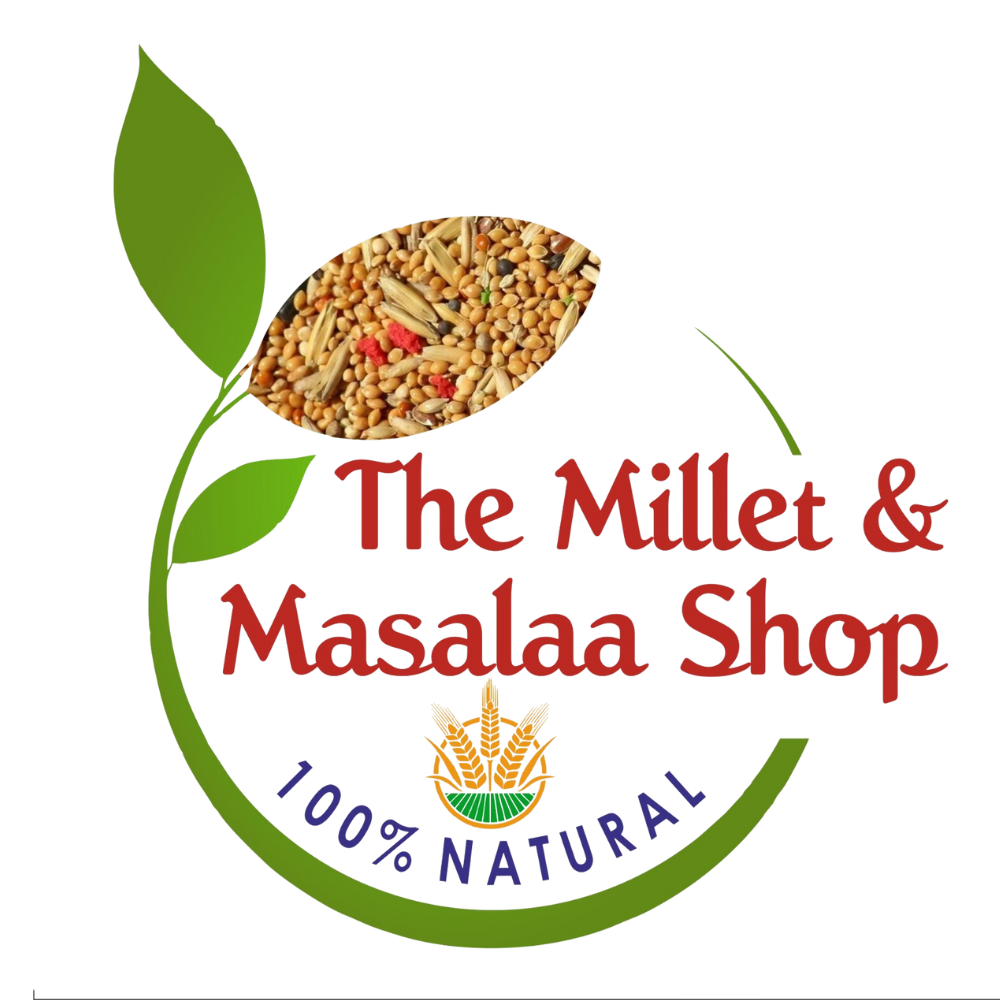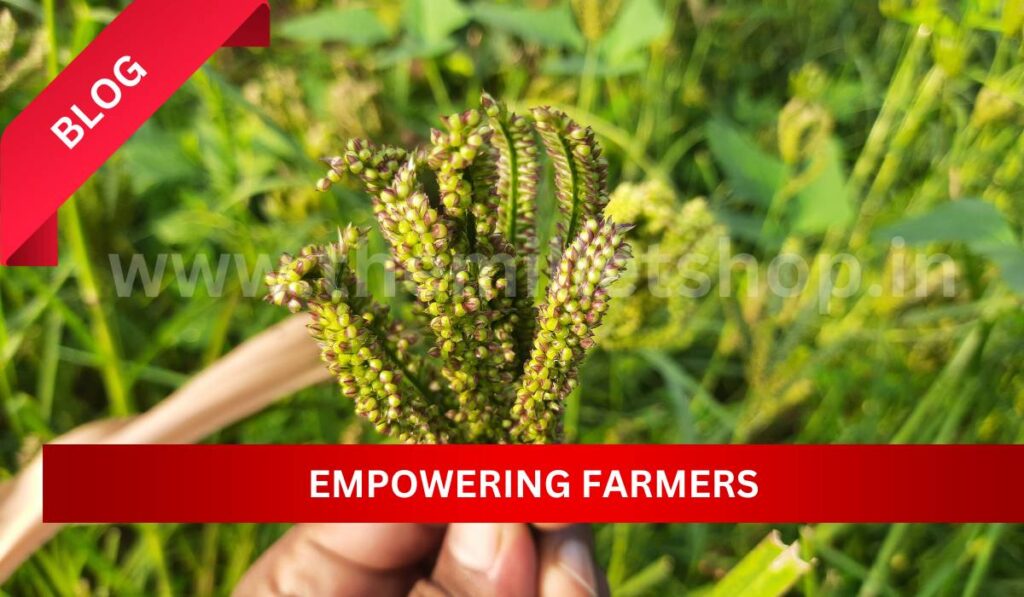Introduction:
In the face of climate change, environmental degradation, and economic inequality, sustainable agriculture practices are more critical than ever. Millet farming stands out as a shining example of how small-scale farmers can thrive while preserving biodiversity and promoting resilience in their communities. In this blog post, we’ll explore the role of millet farming in empowering farmers and preserving biodiversity, highlighting the benefits for both people and the planet.
Empowering Small-Scale Farmers:
Millet farming has long been a cornerstone of small-scale agriculture in many regions around the world. Unlike monocropping systems that rely on high inputs of water, fertilizers, and pesticides, millet cultivation offers small-scale farmers a more sustainable and resilient alternative. Millets are well-suited to diverse agro-climatic conditions, thriving in arid and marginal lands where other crops may struggle. This resilience enables farmers to maintain stable yields even in the face of climate variability and extreme weather events.
By cultivating millets, small-scale farmers can reduce their dependency on costly inputs and external markets, thereby increasing their self-reliance and food security. Additionally, millet farming promotes biodiversity by diversifying crop rotations and preserving traditional seed varieties adapted to local conditions. This diversity not only enhances ecosystem resilience but also provides a buffer against pests, diseases, and market fluctuations.
Preserving Biodiversity:
One of the most significant contributions of millet farming is its role in preserving biodiversity. Millets are among the oldest cultivated crops, with a rich genetic diversity that has evolved over thousands of years of cultivation. Traditional millet varieties exhibit a wide range of traits, including drought tolerance, pest resistance, and nutritional richness. By cultivating and conserving these traditional varieties, farmers help safeguard valuable genetic resources for future generations.
Furthermore, millet farming practices promote agroecological principles such as crop rotation, intercropping, and organic fertilization, which enhance soil health and biodiversity. Millet fields provide habitats for a diverse array of plant and animal species, including pollinators, birds, and beneficial insects. This biodiversity not only contributes to ecosystem services such as pest control and soil fertility but also enhances the resilience of agricultural systems to climate change.
Empowering Communities:
In addition to empowering individual farmers, millet farming contributes to the social and economic development of rural communities. Millets are often deeply ingrained in the cultural heritage and food traditions of local communities, serving as symbols of identity and resilience. By supporting millet cultivation, consumers can help preserve these cultural traditions and promote food sovereignty among marginalized communities.
Moreover, millet farming provides opportunities for value addition and income generation through the processing and marketing of millet-based products. Small-scale farmers can diversify their livelihoods by selling millet grains, flour, snacks, and beverages in local markets or through direct-to-consumer channels. This diversification of income sources helps reduce rural poverty and improve the overall well-being of farming communities.
Conclusion:
In conclusion, millet farming offers a holistic approach to sustainable agriculture, empowering farmers, preserving biodiversity, and promoting resilience in the face of environmental challenges. By supporting millet cultivation and consumption, consumers can play a vital role in promoting sustainable food systems and empowering farming communities around the world. Together, we can harness the power of millets to build a more resilient, equitable, and biodiverse future for all.

